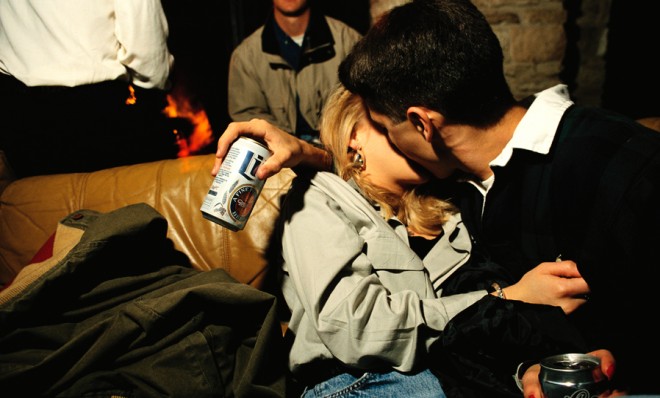Is hookup culture a myth?
A new study finds that students are having less sex these days than two decades ago


A free daily email with the biggest news stories of the day – and the best features from TheWeek.com
You are now subscribed
Your newsletter sign-up was successful
It turns out colleges probably aren't the hotbeds of casual sex that recent articles about "hookup culture" have made them out to be.
A new study released Tuesday found that American college students surveyed between 2002 and 2010 didn't report having any more sex than their counterparts in the late 1980s and early 1990s. Fewer than one third had had sex with more than one person in the preceding year, which was not much different from what students reported a decade and a half earlier. Furthermore, fewer (59 percent) reported having sex weekly than in the late '80s (65 percent).
"We're not living in a new era of no-holds-barred sexuality," said University of Portland sociology professor Martin Monto, who co-wrote the study.
The Week
Escape your echo chamber. Get the facts behind the news, plus analysis from multiple perspectives.

Sign up for The Week's Free Newsletters
From our morning news briefing to a weekly Good News Newsletter, get the best of The Week delivered directly to your inbox.
From our morning news briefing to a weekly Good News Newsletter, get the best of The Week delivered directly to your inbox.
That is not to say that nothing has changed. More students these days say they have been hooking up — which can mean everything from kissing fully clothed to having sexual intercourse — with friends or casual dates rather than an exclusive partner.
The study's conclusions have prompted plenty of I-told-you-sos, including from college sex columnists, who say they always suspected the media had hyped up changes in sexual attitudes on campus. Maia Szalavitz at TIME says that the racy headlines about hookup madness certainly seem to have been a bit exaggerated.
How students think of their liaisons with fellow students has clearly changed, and so has the college culture, apparently. All of the evidence points to the fact that college kids today are drinking less, taking fewer drugs and even having less sex than their parents’ generation. Hooking up just isn't what it used to be. [TIME]
One aspect that seems to get little attention, though, is that plenty of hookups develop into something more, eventually. The problem with most of the breathless reporting and scolding of hookup culture, says Lisa Wade at Pacific Standard, is that it overlooks the fact that relationships grow out of it. "There's no bacchanalian orgy on college campuses, so we can stop wringing our hands about that."
It's by hooking up that many students form these monogamous relationships. Roughly, they go from a first hook-up to a "regular hook-up" to perhaps something that my students call "exclusive" — which means monogamous but not in a relationship — and then, finally, they have "the talk" and form a relationship. As they get more serious, they become more sexually involve.
Come to think of it, this is how most relationships are formed — through a period of increasing intimacy that, at some point, ends in a conversation about commitment. Those crazy kids. [Pacific Standard]
A free daily email with the biggest news stories of the day – and the best features from TheWeek.com
Harold Maass is a contributing editor at The Week. He has been writing for The Week since the 2001 debut of the U.S. print edition and served as editor of TheWeek.com when it launched in 2008. Harold started his career as a newspaper reporter in South Florida and Haiti. He has previously worked for a variety of news outlets, including The Miami Herald, ABC News and Fox News, and for several years wrote a daily roundup of financial news for The Week and Yahoo Finance.
